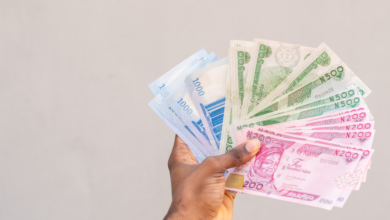Rising speculative bets stoke RBI crackdown on currency derivative | News on Markets

Excessive speculative bets in the domestic currency derivatives market are seen as the key reason behind the Reserve Bank of India (RBI) decision to crack down against those dealing without any underlying exposure.
According to sources familiar with the recent central bank norms on exchange traded currency derivatives (ETCD), the Foreign Exchange Management Act, 1999, does not allow speculation against the Indian currency.
Click here to follow our WhatsApp channel
“Will the Government of India allow speculation against the rupee? Is India now ready to allow policy-driven speculation around the rupee,” said a source while explaining the central bank’s stance on the issue, who wished not to be identified.
Last week, the Reserve Bank of India (RBI) deferred the implementation of norms on ETCDs linked to the Indian rupee until May 3, following concerns by investors that the move would dry out liquidity.
The norms were scheduled to take effect from April 1.
Rupee-denominated currency derivatives contracts are actively traded on the National Stock Exchange (NSE), the BSE, and some on the Metropolitan Stock Exchange of India (MSEI).
Technically, all the trades require an underlying exposure. However, traders are not required to provide evidence of underlying exposure for positions up to $100 million; they must confirm the existence of such exposure. Post the press conference after last week’s monetary policy, RBI had said investors were ‘misusing’ the guidelines.
Data shows the average daily turnover (ADTV) in the ETCD segment has risen sharply during the post-Covid years. The ADTV in the financial year 2021-22 (FY22) went up to Rs 1.41 trillion, up from Rs 70,470 crore in the previous year, combined data from NSE and BSE showed. Trades on NSE contributed most of the volumes.
ADTV came off the cliff in April even amid the uncertainty over open positions without any underlying exposure. Exchange traded currency derivatives gained popularity among investors in recent years, while products like credit default swaps, interest rate futures failed to make any mark so far.
Data from the Securities and Exchange Board of India (SEBI) showed shares of proprietary trades accounted for two-thirds of the turnover in FY23 on the NSE, while Foreign Portfolio Investors (FPI) share was about 9.5 per cent.
Market observers say the bulk of the option interest is on account of intra-day traders, which indicates the ETCD market is being used for speculative trading. This, they add, complicates the function of rupee management for the RBI. “Lately, there have been concerns of increased usage of algorithmic trades in the ETCD market. Foreign trading firms operating from tax-friendly jurisdictions have become active in the market. These participants don’t add any value to the ecosystem as they pay little or no tax and put pressure on the rupee,” said an official with a brokerage.
RBI had said the regulatory framework for participation in ETCDs involving the rupee is guided by the provisions of the Foreign Exchange Management Act (FEMA), 1999, and regulations mandate that currency derivative contracts involving rupee – both over-the-counter (OTC) and exchange-traded – are permitted only for the purpose of hedging exposure to foreign exchange rate risks.
Sources said whenever the Indian currency came under pressure, it was mainly from the ETCD and non-deliverable forward (NDF) market. In the past, the central bank had intervened in the spot, forwards, and currency futures market to curb volatility.
RBI has been proactive in managing the exchange rate, which helped the rupee to become one of the most stable emerging market currencies in 2023-23. The central bank, which has allowed the currency to depreciate at a slow pace, has also managed to accumulate foreign exchange reserves, which is now at a record high of $645.5 billion.
Source link




